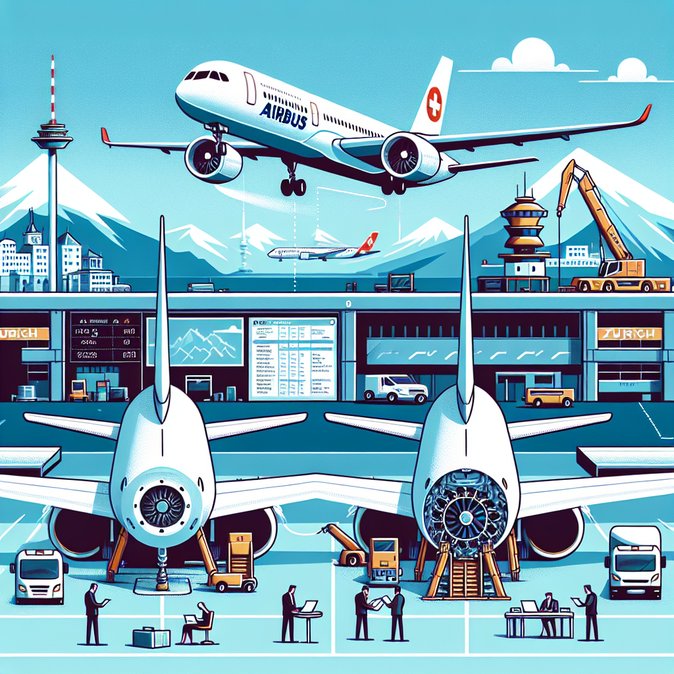
Swiss International Air Lines (SWISS) confirmed on 30 October 2025 that it is grounding all nine of its Airbus A220-100 aircraft so that their Pratt & Whitney PW1500G engines can be removed and used as spare parts for the carrier’s larger A220-300 fleet.
The drastic decision follows a sharp rise in unscheduled engine removals caused by premature wear in the PW1500G power-plants. Speaking during the airline’s third-quarter results presentation, Chief Financial Officer Dennis Weber acknowledged that “more than ten aircraft” are currently out of service because of the engine issue and that maintaining schedule reliability for business-critical routes is now the top priority. The A220-100s, introduced in 2016 for high-yield services such as Zurich-London City, will remain parked “for about a year and a half,” Weber said, while SWISS waits for overhauled engines from Pratt & Whitney’s strained maintenance network.
Operationally, the move reduces fleet complexity and frees up crew resources, but capacity is taking a near-term hit. SWISS will cover London City and other slot-constrained airports with wet-leased Embraer E190-E2s from partner Helvetic Airways, and is re-accommodating passengers on alternative flights within the Lufthansa Group. Corporate travel managers have been advised to check bookings made on A220-100 rotations and allow additional buffer time for onward connections in case of equipment swaps.
The fleet reshuffle highlights a widening maintenance crisis for the geared-turbofan family that is affecting carriers worldwide. While SWISS says it does not plan to sell or permanently retire the smaller jets, engine shortages will continue to limit growth into 2026. Travel buyers should expect tighter seat availability on key European routes from Zurich and potentially higher last-minute fares until the situation stabilises.
From a mobility-risk standpoint, companies sending staff to Switzerland should monitor short-haul itineraries closely, use flexible fares where possible and sign up for the carrier’s flight-status alerts. Travellers already ticketed on affected services can usually be rebooked free of charge on alternative SWISS, Lufthansa or Star Alliance flights, but inventory is limited during peak hours.
The drastic decision follows a sharp rise in unscheduled engine removals caused by premature wear in the PW1500G power-plants. Speaking during the airline’s third-quarter results presentation, Chief Financial Officer Dennis Weber acknowledged that “more than ten aircraft” are currently out of service because of the engine issue and that maintaining schedule reliability for business-critical routes is now the top priority. The A220-100s, introduced in 2016 for high-yield services such as Zurich-London City, will remain parked “for about a year and a half,” Weber said, while SWISS waits for overhauled engines from Pratt & Whitney’s strained maintenance network.
Operationally, the move reduces fleet complexity and frees up crew resources, but capacity is taking a near-term hit. SWISS will cover London City and other slot-constrained airports with wet-leased Embraer E190-E2s from partner Helvetic Airways, and is re-accommodating passengers on alternative flights within the Lufthansa Group. Corporate travel managers have been advised to check bookings made on A220-100 rotations and allow additional buffer time for onward connections in case of equipment swaps.
The fleet reshuffle highlights a widening maintenance crisis for the geared-turbofan family that is affecting carriers worldwide. While SWISS says it does not plan to sell or permanently retire the smaller jets, engine shortages will continue to limit growth into 2026. Travel buyers should expect tighter seat availability on key European routes from Zurich and potentially higher last-minute fares until the situation stabilises.
From a mobility-risk standpoint, companies sending staff to Switzerland should monitor short-haul itineraries closely, use flexible fares where possible and sign up for the carrier’s flight-status alerts. Travellers already ticketed on affected services can usually be rebooked free of charge on alternative SWISS, Lufthansa or Star Alliance flights, but inventory is limited during peak hours.





